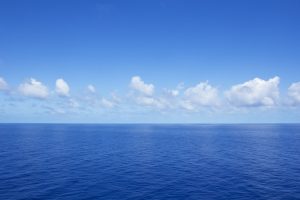Australia is in the midst of an election campaign where something incredibly rare is occurring. Due to the recently signed security agreement between the Solomon Islands and China, foreign policy has become a major election issue – with how Australia approaches its relationships with its Pacific neighbors now becoming a prominent public concern. Although the development that led to this is fraught, political parties having to address an issue that is usually not what they campaign on, and Pacific Islands themselves having their profile raised in Australia, are genuine positives.
However, within all the discussion about Australia’s role in the Pacific, there is one pillar of engagement that is currently under-utilized by Canberra, an asset that doesn’t seem to be on the radar of the major political parties either – that is the knowledge and perspectives of Australia’s First Nations population. Indigenous perspectives are able to drive more common bonds within the Pacific Family.
The idea of the Pacific Family is one that has become central to Australia’s “Pacific Step-Up” – its attempt to re-engage itself in the region due to China’s increased presence. Yet more often than not Canberra can come across as a domineering parent insistent that it knows what’s best for the Pacific, rather than displaying the cooperative affinity and empathetic kinship that the concept should entail. In rectifying this approach there is opportunity for First Nations peoples to play a far greater role in Australia’s foreign policy.
A new issue paper for the Australian Feminist Foreign Policy Coalition titled “Indigenous Foreign Policy: a new way forward?” – written by Julie Ballangarry from the School of Government and International Relations, Griffith University, and James Blackwell from the Coral Bell School of Asia Pacific Affairs, Australian National University – highlights how First Nations people have been “excluded from Australia’s foreign policy input and its considerations which, given their unique perspectives, is to the detriment of Australia’s international engagement.”
Ballangarry and Blackwell write that First Nations peoples have “ways of being where individuals, rather than a state, share collective but individual responsibilities on law, caring for Country, relationality and reciprocity [that] are very different to Western inter-polity relations.” The authors argue that this perspective can bring new insights into how Australia conducts its international affairs. This is especially important due to Australia being a Western-dominated society in a non-Western region of the world.
The term “Country” in Aboriginal English (always capitalized to emphasize its significance) has a meaning distinct from a Western conception of a landmass governed by a political entity, with certain cultural attributes. For First Nations peoples, Country is a broader spiritual and philosophical idea that relates the people to the land and to nature itself. The people and natural environment are one and the same; humans are not better than or above the environment, but instead they are part of the ecosystem and need to be in harmony with it. The land and the oceans that surround it are not human possessions, which is a perspective that can be prominent in modern states formed through colonization.
The idea of “Country” is complementary to the concept of the “Blue Pacific,” which is central to the way Pacific Islands have come to project themselves to the world. Instead of “small island states,” Pacific Islanders wish to be understood as “large ocean states.” The Blue Pacific is a recognition that the ocean is the primary influence on the Pacific’s way of life. It emphasizes that Pacific peoples have a spiritual bond with the ocean — it has shaped their history, values, and culture. Pacific Islanders see themselves as custodians of the ocean.
Where Australia is failing in its relationships with Pacific Islands is in this space. Pacific Island countries have prioritized their relationships with their environments as the primary component of their human security. They recognize that there is a fragility to the environment that requires human responsibility, and a keen understanding of the interdependent relationship humanity has with it. With its inability to take climate change seriously, Australia has demonstrated a lack of empathy with Pacific security (as well as its own), ultimately weakening regional bonds.
As Ballangarry and Blackwell write, “First Nations expertise around caring for Country is something Australia and the global community can benefit from in the face of climate change and its related challenges, and represents a strong area of potential inclusion.” This inclusion refers to both First Nations peoples’ role in Australian policymaking, but also Australia’s inclusion within its own region.
The challenges posed by climate change require a consciousness shift. Pacific Island countries have been at the forefront of this consciousness shift, but Australia has struggled to adapt itself to new realities. Yet by giving Indigenous knowledge and understanding greater prominence in policymaking, Australia has the opportunity to not only better serve the region’s environmental imperatives, but make robust contributions to its Pacific relationship-building, as well as its wider strategic goals.

































